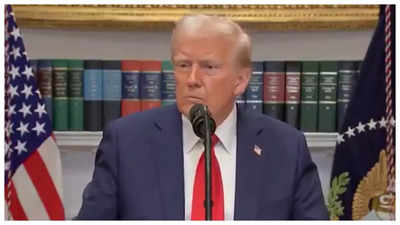US President Donald Trump announced on Friday his intention to implement tariffs on imported vehicles around April 2, adding to the series of duties he has proposed since assuming office.
Trump has targeted both friends and foes with potential new duties since his inauguration on January 20.
He has utilised tariffs as an instrument to generate income, address trade disparities and compel nations to respond to American concerns.
When questioned about the timing of auto tariffs, Trump responded, “Maybe around April 2.”
Without providing additional information on Friday, these automotive sector charges would follow his recent confirmation of tariffs on all steel and aluminium imports starting March 12.
Previously, he has indicated plans for tariffs on semiconductors, steel, oil and gas sectors.
In addition to industry-specific measures, Trump has declared and suspended comprehensive tariffs on major trading allies Canada and Mexico, whilst imposing a 10 percent additional charge on Chinese goods, prompting retaliation from Beijing.
On Thursday, expanding trade disputes further, Trump initiated plans for “reciprocal tariffs” potentially affecting all US trading partners individually.
Economic experts caution that Trump’s application of tariffs as a tool to secure concessions across various issues, including trade, immigration and drug trafficking, could fundamentally alter global trade practices.







